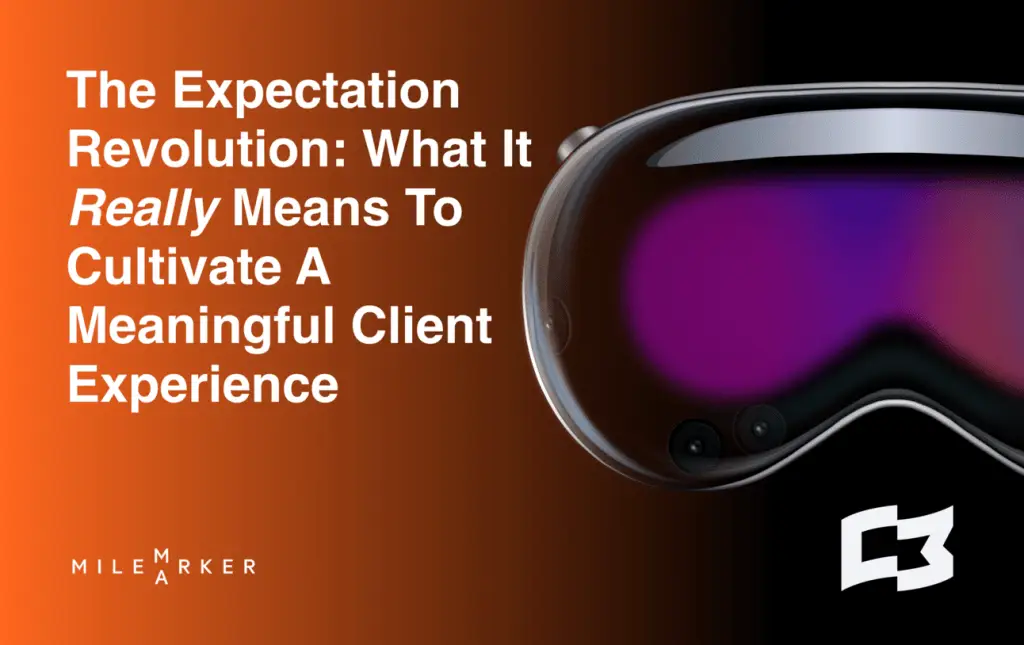Apple released its brand-new Vision Pro headset late last week.
If you want to spend $3,499, you can order a pair, pop them on, and enter a new reality.
Or, you can watch this 10-minute classic Casey Neistat video where he walks through NYC with the Apple Vision Pro headset and shares his take on the experience:
You no longer need a cookbook or an iPad with a recipe pulled up.
You no longer need your phone to respond to text messages.
And you certainly no longer need a TV to pull up Netflix.
I went down a rabbit hole of watching videos like this, one of people sharing how these goggles are reshaping the way they experience their everyday life and giving us a glimpse into the future of spatial computing.
Now, I’m not saying that this revolution is going to happen tomorrow, but it’s certainly the direction we’re heading – whether we like it or most likely feel oddly uncomfortable about it.
The Expectation Revolution
What’s undeniable is our need to adapt and understand the experience and expectation revolution unfolding before us.
We must become observers of our clients, our culture, and the advancements shaping our reality.
The expectation revolution is because every moment you are exposed to an entirely new experience, like extraordinary computing that makes sense in real life – your expectations have forever shifted.
How we choose to adapt to it or not shapes our client experience daily.
I am currently working with a large, globally recognized investment bank, and I could list a million examples of how antiquated their tech is.
This one experience highlights the immense opportunity that exists for us to not only meet client expectations but surpass them and create a truly remarkable experience.
But it doesn’t start with goggles.
And it doesn’t even necessarily start with the latest and greatest fintech tools.
It starts with us understanding that every bit of interaction is experience, and every interaction matters.
From the way that you answer the phone.
To the follow-up email you send.
To how we express empathy during a client’s difficult time.
Are we fixated solely on technical solutions, scale, and integration, or are we attuned to the human aspect of our profession?
If we’re not actively honing our understanding of client experiences, are we serving our clients in the best way possible?
The future of client engagement lies not in the gadgets we wield but in our ability to cultivate meaningful connections and deliver meaningful experiences.

